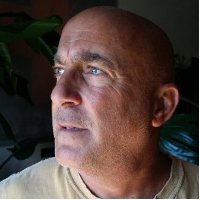It takes a brave and far-sighted soul like Joe Sibilia to combine his passions for sustainable business practices, social good, and entrepreneurship. Joe is an early adopter and visionary in the social responsibility movement. Over the years he has been the former founder and CEO of the values-driven investment bank Meadowbrook Lane Capital, and former CEO of CSRWire, a digital media platform that advances capitalism towards a more economically just and environmentally wise society. Fueled by the fundamental idea that it’s possible to find value in that which has been abandoned, Joe also founded the Gasoline Alley Foundation in 1985. Gasoline Alley is an inspiring incubator for socially responsible start-ups. The Foundation, located in Springfield, Massachusetts, also teaches inner city youth and underprivileged persons how to be successful entrepreneurs.
I recently spoke to Joe, this week’s Wisdom Works Group Face of Wellbeing Leadership, about how he launched Gasoline Alley, and how he lives and leads wellbeing.
What is Gasoline Alley?
“Gasoline Alley Foundation is an innovative environment for social entrepreneurship in Springfield, Mass,” he says. “We’ve helped incubate 57 companies on our campus and we’re on our 58th right now.” The Foundation provides start-up help, financing, and mentorship for the companies with the hope that they will thrive and grow and move on.
“It’s awesome,” says Joe. “The two most recent additions to the community are a father and son team from the Dominican Republic that bought a franchise for OxiClean—it’s all natural, biodegradable, organic cleaning products. They clean carpets, cars and ambulances. The other addition is an organic farmer and a chemist that are taking organic apples grown on Western Massachusetts farms and bringing them down to Gasoline Alley to process them in our hard distillery here on campus—Artifact Cider.”
“Plus, Gasoline Alley has an environmental sustainability plan for the long term. We’ve planted hundreds of trees and plants all around the property. We’ve got community gardens. We have two plum trees, two apple trees, strawberry patches, flowering cactus, mints, a bunch of different seasonings—thyme and rosemary, and four varieties of oregano growing out there. We grew corn last year and tomatoes, eggplants, carrots and parsley. We grew a lot last year. We compost and we have bioremediation [using organisms to remove or neutralize pollutants from a contaminated site].” I hear excitement in Joe’s voice when he affirms, “What we’re creating at Gasoline Alley is a living and learning center.”
Where did the idea for Gasoline Alley come from?
“I think the original, the genesis of it, probably had to do with my own development. I didn’t really spend a lot of time with my family,” Joe says. “So there was probably this sense, somewhere, of a feeling of abandonment in my own psyche. And that’s combined with the notion that in nature there is no waste. I wrote a book with Dave Major (Street Smart Sustainability: The Entrepreneur’s Guide to Profitably Greening Your Organization’s DNA) and one of my favorite chapters in the book is this idea that in nature there is no waste.”
“People say ‘I threw this away, I threw that away.’ I’m not sure I’ve ever thrown anything away. I don’t know where “away” is. At Gasoline Alley recycle as much as we possibly can with everything we have here. We give value to that which has been abandoned. People that have been abandoned – streets that have been abandoned –buildings that have been abandoned – furniture, you name we’ll give value to it – even what most people call trash. For example, we make our own furniture. We had project a few years ago where we took a 6,000-square-foot house apart. This Old House did five segments on it. We brought the house back in pieces to Gasoline Alley and we were able to build three homes for the homeless with it. So that was cool.”
How do you role-model wellbeing?
“For me, wellbeing means adopting a healthy lifestyle—eating and drinking correctly, exercising—and what you have in your environment. That could mean what you use to clean things, what you put on your body. The individual’s approach to how they live, how they make decisions about what they buy and what they consume—that all contributes to wellbeing,” he says.
“We take six young men at a time between the ages of 15 and 21. I learn so much from these young men by having them here for six weeks. Sometimes I’ll get one kid in the group who will really see this as an opportunity to learn more about wellbeing. One of the things we teach them is meditation; they start with 5 minutes and gradually build up time to 15. And many of these kids have never sat down for five minutes! This one kid took to it naturally and went on to do a 10-day retreat that included meditation. That retreat has made him rethink many things—from whether he should eat meat because it’s been killed to how he should paint. It’s changed him fundamentally. It made him more conscious of the impact of his actions. I find that inspiring.”
What has been the biggest surprise for you as you’ve been doing this?
“The biggest surprise has been how challenging it is, how wide the disconnect is between most people’s aspirations for sustainability and their actual actions,” Joe says. “If I didn’t have a strong sense self and my own spirituality, I could get depressed by it.”
“The other challenge is keeping our technology and communication up to date. We spend so much time on the work that we sometimes neglect letting others know how great the startups are doing,” he says.
“At Gasoline Alley we have all the challenges of innovation combined with wellbeing. To minimize our impact on the planet we attempt to recycle all our trash, no dumpster. We have a huge sign, “No Dumpster.” And for the life of me, there’s always some trash. There’s always something I don’t know what to do with! But we keep trying. We gotta keep trying.”
READ MORE
• On the Road to Thriving: Motivating the Next Generation
• Alexis Jones: A Millennial’s Wisdom for Leading Wellbeing
• The Art of Convening: Do You & Your Team Have Space to Transform?
• How John C. Havens Sees Technology Changing the Pursuit of Wellbeing
• The Big Questions of Living an Inspired Life (And 4 Big Answers!)
 Renee Moorefield, PhD
Renee Moorefield, PhD
A deep and early belief that the values of health and sustainability would remake the way we live, lead, and work in the 21st century led Renee to launch Wisdom Works with her husband David Moorefield in 1999. Ever since, she’s helped forward-thinking clients—including Apollo Group, Booz Allen Hamilton, Merck & Company, Centura Health, Western Union, and The Coca-Cola Company—embed wellbeing strategies to create inspired workplaces, develop caring relationships with citizens, and produce results that matter.






